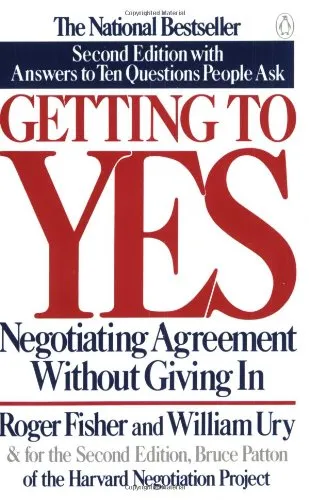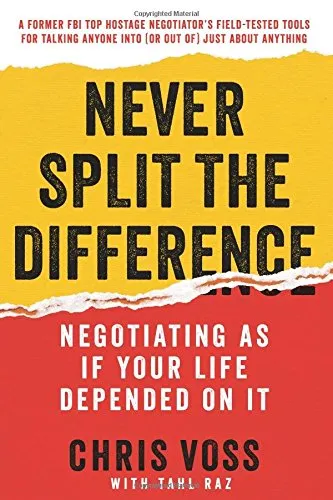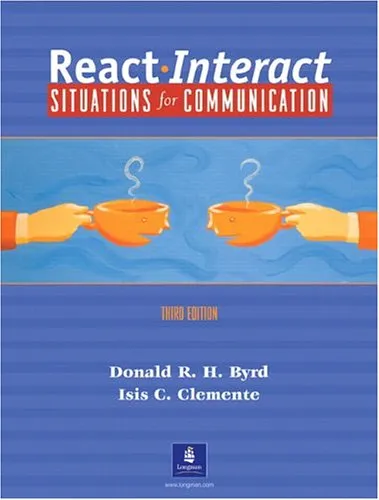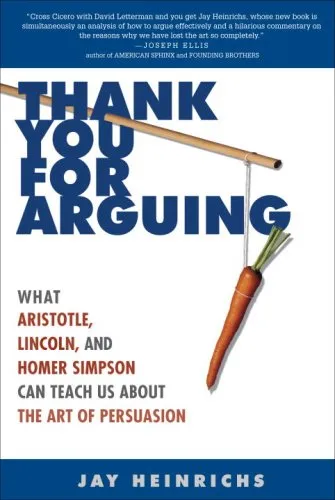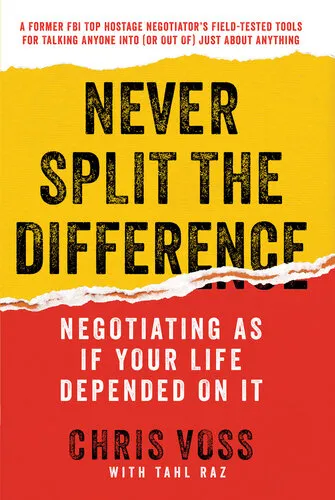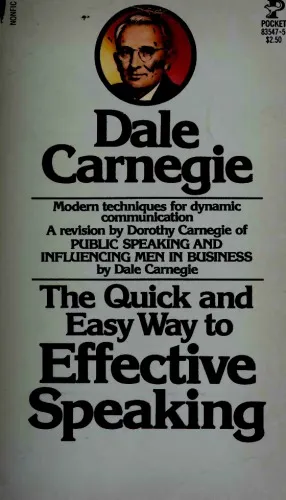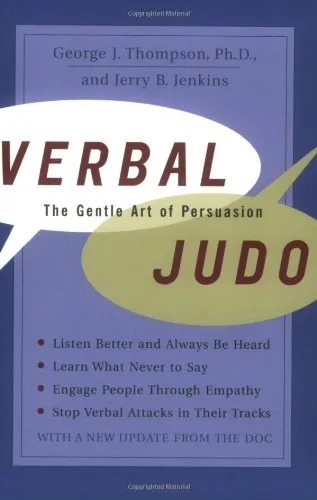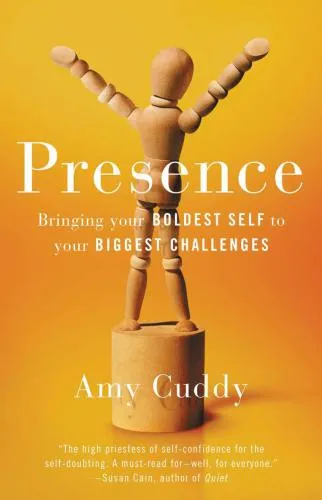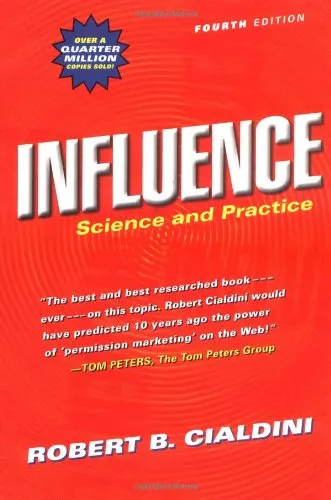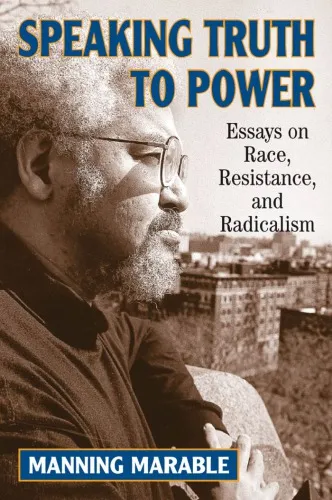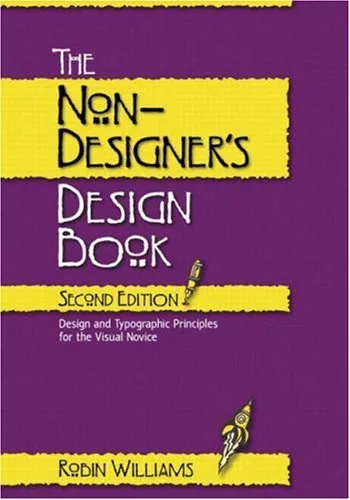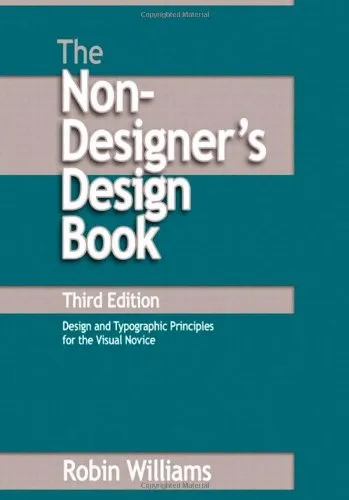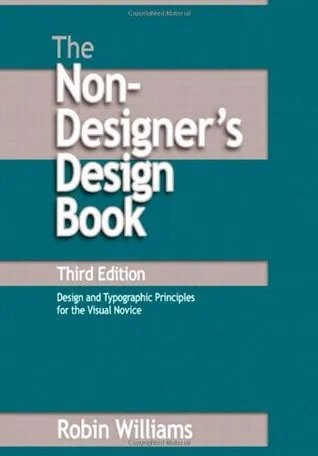Getting to Yes: Negotiating Agreement Without Giving In
4.7
بر اساس نظر کاربران

شما میتونید سوالاتتون در باره کتاب رو از هوش مصنوعیش بعد از ورود بپرسید
هر دانلود یا پرسش از هوش مصنوعی 2 امتیاز لازم دارد، برای بدست آوردن امتیاز رایگان، به صفحه ی راهنمای امتیازات سر بزنید و یک سری کار ارزشمند انجام بدینکتاب های مرتبط:
معرفی کتاب "Getting to Yes: Negotiating Agreement Without Giving In"
کتاب "Getting to Yes: Negotiating Agreement Without Giving In" یکی از معتبرترین منابعی است که به موضوع مذاکره میپردازد. این کتاب که توسط راجر فیشر و ویلیام یوری نوشته شده است، اصول و راهکارهای مؤثری را برای دستیابی به توافقات کارآمد و پایدار ارائه میدهد، بدون اینکه یکی از طرفین احساس شکست کند.
خلاصهای جامع از کتاب
این کتاب به چهار اصل اساسی برای مذاکره اصولی و کارآمد میپردازد. اول، تفکیک انسانها از مسئله مورد مذاکره، دوم، تمرکز بر منافع بیش از مواضع، سوم، ایجاد گزینههای ممکن برای سود دو طرف، و چهارم، اصرار بر معیارهای عینی برای تصمیمگیری. فیشر و یوری تأکید دارند که مذاکرات نباید به عنوان یک بازی برد-باخت نگریسته شود، بلکه میتوان به توافقاتی دست یافت که برای همه طرفین مفید باشد.
نکات کلیدی کتاب
- تفکیک احساسات و مسائل شخصی از موضوعات مورد مذاکره، که به کاهش تنشها و افزایش اثربخشی جلسه مذاکره منجر میشود.
- تمرکز بر منافع نه مواضع: درک نیازهای واقعی پشت مواضع اعلام شده، راهی برای یافتن راهحلهای خلاقانه است که به همه طرفها سود میرساند.
- گسترش گزینههای ممکن: مذاکرهکنندگان باید خلاق و باز باشند تا گزینههای بیشتری برای انتخاب داشته باشند که همه طرفین را راضی کند.
- استفاده از معیارهای عینی: پیشنهاد تصمیمگیری بر اساس معیارهای عینی مانند قوانین، استانداردها و تجارب متداول، به عوض تأکید بر قدرت و فشار، میتواند منجر به توافقات منطقیتر و پایدارتر شود.
نقل قولهای معروف از کتاب
"مذاکره تنها بحث درباره چیزی است که نمیتوانید به تنهایی انجام دهید."
"مردم مسئله اصلی در مذاکرات نیستند؛ آنها کسانی هستند که باید به آنها دست پیدا کنید."
چرا این کتاب اهمیت دارد
کتاب "Getting to Yes" به دلیل ارائه راهکارهای عملی و واقعبینانه، به یکی از منابع اصلی در زمینه مذاکره تبدیل شده است. این کتاب به ویژه برای مدیران، کارآفرینان، حقوقدانان و همه کسانی که در موقعیتهای نیازمند توافق قرار میگیرند بسیار مفید است. با استفاده از رویکردهای ارائه شده در این کتاب، بسیاری از مذاکرات پیچیده به توافقهای سازنده تبدیل میشوند. مهمترین تاثیر این کتاب در جهان کسب و کار و دیپلماسی، تشویق به یافتن راهحلهایی در مذاکرات است که نه تنها به نفع یک طرف، بلکه به نفع همه طرفها باشد.
Introduction to "Getting to Yes: Negotiating Agreement Without Giving In"
Negotiation is an integral part of both personal and professional life. "Getting to Yes: Negotiating Agreement Without Giving In," authored by Roger Fisher and William L. Ury, is a seminal work that presents a principled approach to negotiation, a method that offers mutual gain while avoiding the pitfalls of conflict and stalemate.
Detailed Summary of the Book
At the core of "Getting to Yes" is the notion of "principled negotiation," which is both a method and a philosophy. Unlike traditional negotiation strategies that often focus on positional bargaining—where parties lock into rigid stances—principled negotiation seeks to address the interests underlying those positions. The authors outline four fundamental principles to achieve effective negotiation outcomes:
- Separate the People from the Problem: Human emotions and egos often complicate negotiations. By distinguishing personal relationships from substantive issues, parties can address the problem effectively without jeopardizing interpersonal relations.
- Focus on Interests, Not Positions: Positions are surface-level stances, whereas interests represent the underlying motivations. By concentrating on interests, negotiators can uncover common ground and explore creative solutions.
- Invent Options for Mutual Gain: Instead of seeing negotiation as a zero-sum game, the authors encourage the exploration of win-win situations where all parties benefit. Brainstorming multiple solutions can lead to innovative outcomes that satisfy various interests.
- Insist on Using Objective Criteria: Decisions should be based on fair standards, independent of biased wills. Objective criteria provide a common framework for evaluating options, fostering fairness and impartiality in decisions.
Key Takeaways
The significance of "Getting to Yes" lies in its practical approach to negotiation. Here are some key takeaways:
- Understanding interests rather than positions can transform adversarial negotiations into cooperative problem-solving.
- Effective negotiators are those who can identify common purposes and craft outcomes that satisfy all parties involved.
- Emotional intelligence plays a critical role in negotiations, as it helps in managing relationships and overcoming psychological barriers.
- Maintaining a principled stance requires preparation and investment in understanding objective criteria as guidelines for fair solutions.
Famous Quotes from the Book
"Getting to Yes" is rich with insightful perspectives. Here are a few memorable quotes:
"The method of principled negotiation is hard on merits, soft on people."
"Your position is something you have decided upon. Your interests are what caused you to so decide."
"The ability to see the situation as the other side sees it, as difficult as it may be, is one of the most important skills a negotiator can possess."
Why This Book Matters
"Getting to Yes" has endured as a classic in negotiation literature for its accessible, practical guidance and universal applicability. It equips readers with a strategic framework that can be applied to negotiations of any scale, from resolving family disputes to high-stakes business deals. The book’s emphasis on collaboration, respect, and shared interest marks a departure from adversarial negotiating practices, promoting peace and cooperation in various contexts. For anyone looking to improve their negotiation skills, "Getting to Yes" offers timeless wisdom that is both transformative and empowering.
دانلود رایگان مستقیم
شما میتونید سوالاتتون در باره کتاب رو از هوش مصنوعیش بعد از ورود بپرسید
دسترسی به کتابها از طریق پلتفرمهای قانونی و کتابخانههای عمومی نه تنها از حقوق نویسندگان و ناشران حمایت میکند، بلکه به پایداری فرهنگ کتابخوانی نیز کمک میرساند. پیش از دانلود، لحظهای به بررسی این گزینهها فکر کنید.
این کتاب رو در پلتفرم های دیگه ببینید
WorldCat به شما کمک میکنه تا کتاب ها رو در کتابخانه های سراسر دنیا پیدا کنید
امتیازها، نظرات تخصصی و صحبت ها درباره کتاب را در Goodreads ببینید
کتابهای کمیاب یا دست دوم را در AbeBooks پیدا کنید و بخرید
1537
بازدید4.7
امتیاز0
نظر98%
رضایتنظرات:
4.7
بر اساس 0 نظر کاربران
Questions & Answers
Ask questions about this book or help others by answering
No questions yet. Be the first to ask!
